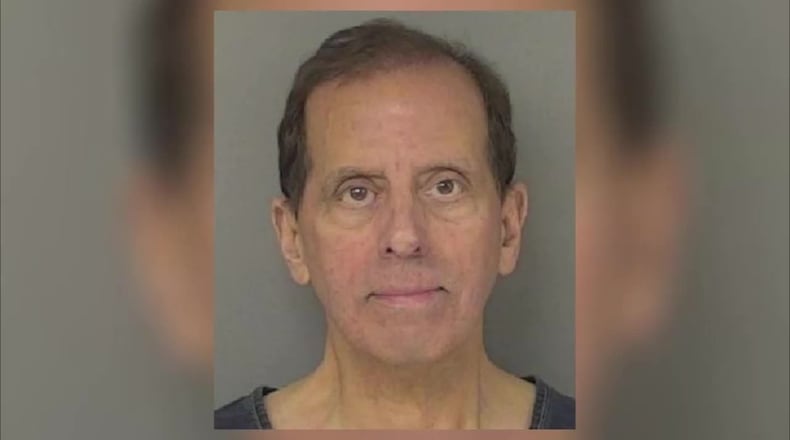He faces up to 21 years in prison; however, none of the charges require a mandatory term and he is eligible for community control sanctions.
For years Ramey was a leading voice on issues of child endangerment and exploitation. He was a longtime employee of Dayton Children’s Hospital, where he last served as executive director for pediatric mental health resources. His employment was terminated in August 2019, the hospital said, and none of the allegations involved any activity at Dayton Children’s.
His medical licenses expired in July, according to the Ohio Board of Psychology website.
Ramey remains on GPS monitoring pending his sentencing and he is not to have any unsupervised contact with children. However, the court lifted his house arrest when he made his plea.
Ramey had faced charges of illegal use of a minor in nudity-oriented material, pandering obscenity involving a minor, attempted pandering sexually oriented matter involving a minor. Those charges were dismissed.
“This was our goal all along,” Ramey’s attorney Jon Paul Rion said after the September plea hearing. “As I’ve said in the beginning, this is not a case of child pornography. And I think after our experts looked at the case, and other professionals looked at the case, we reached a resolution that I think is fair and properly frames the issue that is at hand.”
Rion has told the media since Ramey was charged in 2020 that the images are not pornographic and the individuals are clothed. The Ohio Attorney General’s Office, which prosecuted the case, on the other hand issued a press release in 2020 announcing Ramey had been charged in a child pornography case.
The Attorney General’s office said in the earlier release that Ramey was identified as the source of electronic downloads of child pornography and the activity was reported to the Ohio Internet Crimes Against Children Task Force, which alerted local authorities.
The investigation was done by the Beavercreek Police Department and the Ohio Bureau of Investigation.
The defense and prosecutors had spent almost a year dueling over evidence in the case and whether probable cause existed for search warrants. In court filings, the defense argued that investigators used the term “erotica” and not child pornography to get the warrants and that there was a difference.


